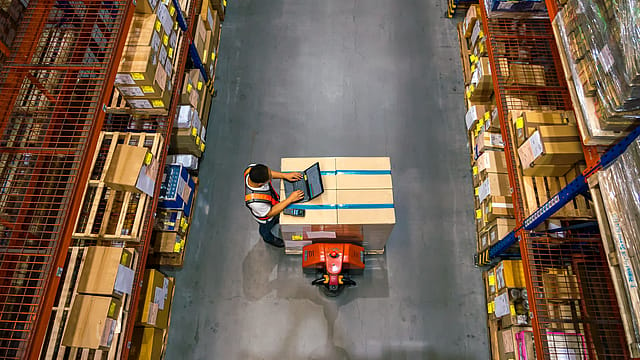Blue Dart to hike shipment prices from 2023
ADVERTISEMENT

Logistics company Blue Dart Express Ltd. has announced a general price increase with effect from January 1, 2023.
The average shipment price increase will be 9.6% as compared to 2022, depending on the shipping profile, the courier company says in a stock exchange filing.
High inflation, rising interest rates, and high input costs have taken a toll on the margins of the business, the company says.
Modest gross domestic product (GDP) growth, slow pace of recovery owing to global supply chain bottlenecks, all of which necessitates a marginal price increase, it adds.
Blue Dart said it adjusts its prices annually, taking into account inflation, currency dynamics, fuel cost instabilities, growing regulatory costs and other mandatory costs, such as expenses related to compliance for the workforce with enhanced security regulations across over 55,000 locations it services.
“Our annual increase is more inflation related and enables us to sustain service quality and cost increases,” says Balfour Manuel, managing director of Blue Dart.
The company said 'Ship To Profile' will be a new derivative idea offered to help high-volume shippers while also correcting prices for other shippers.
This comes days after the Union cabinet approved the National Logistics Policy, which aims to reduce the cost of logistics in India to be comparable to global benchmarks by 2030.
The new policy also aims to improve the Logistics Performance Index ranking, to be among the top 25 countries by 2030, and create data driven decision support mechanism for an efficient logistics ecosystem.
To monitor the implementation of the policy and integrate efforts across stakeholders, the policy will utilise the existing institutional framework i.e., Empowered Group of Secretaries (EGoS) created under the PM GatiShakti National Master Plan.
This policy paves way for reduction in logistics cost in the country, the government said, adding that focus will be on enabling adequate development of warehouses with optimal spatial planning, promotion of standards, digitisation and automation across the logistics value chain and better track and trace mechanisms.
The policy also lays down an action agenda for immediate on ground implementation of various initiatives. In fact, to ensure that the benefits of this policy have maximum possible outreach, important initiatives under the policy including the Unified Logistics Interface Platform (ULIP), the Ease of Logistics Services platform, e-handbook on Warehousing, training courses on PM GatiShakti and logistics on i-Got platform, were launched along with the launch of the National Logistics Policy.
While PM GatiShakti is aimed at integrated infrastructure development, the National Logistics Policy is envisaged to bring efficiency in logistics services, and human resources through streamlining processes, regulatory framework, skill development, mainstreaming logistics in higher education and adoption of suitable technologies.
All states and union territories (UTs) have been fully onboarded. 14 states have already developed their respective State Logistics Policies on the lines of the National Logistics Policy and for 13 states, it is in draft stage.
The policy supports enhancing competitiveness of micro, small and medium enterprises, and other sectors such as agriculture and allied sectors, fast moving consumer goods and electronics
It also envisages greater integration of global value chains and higher share in global trade besides facilitating accelerated economic growth in the country.